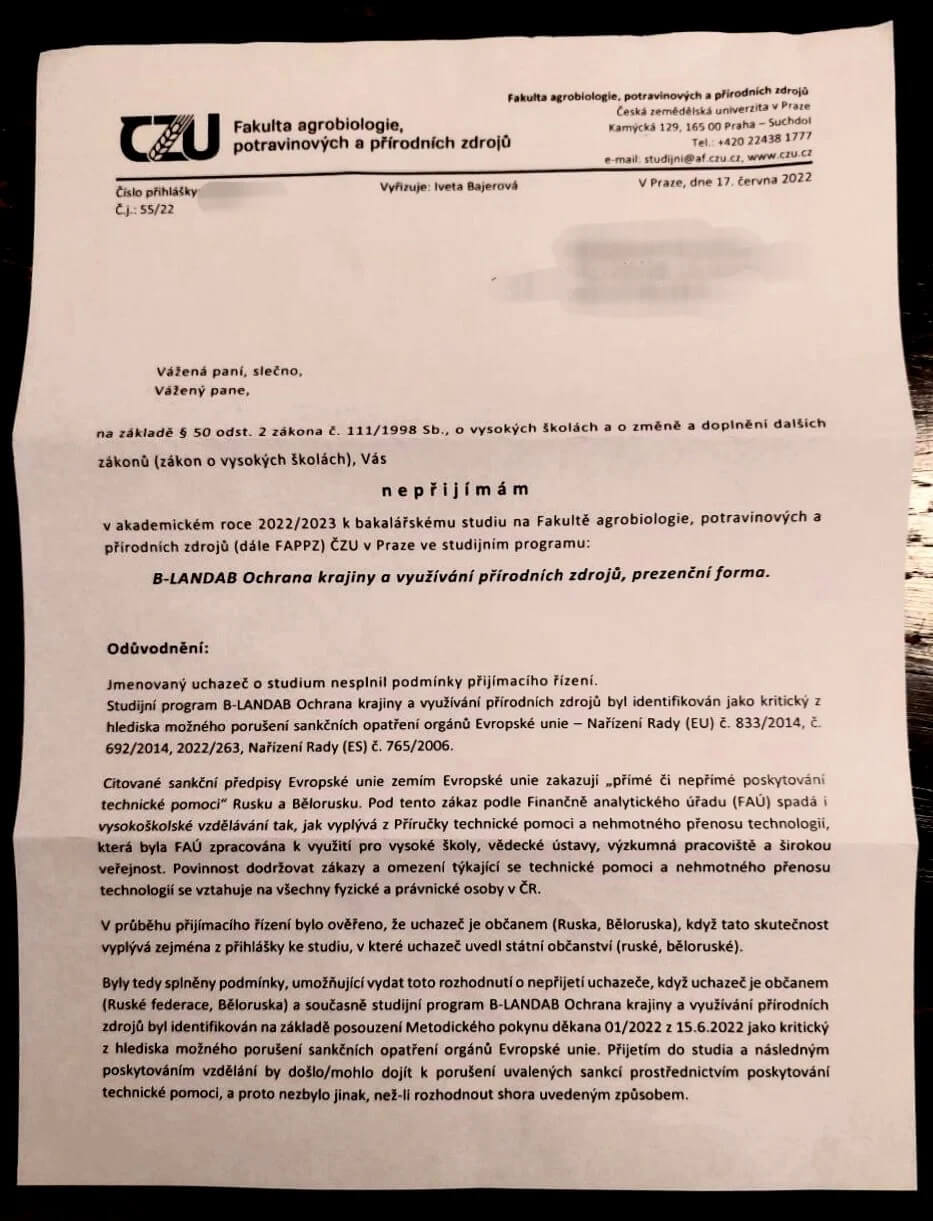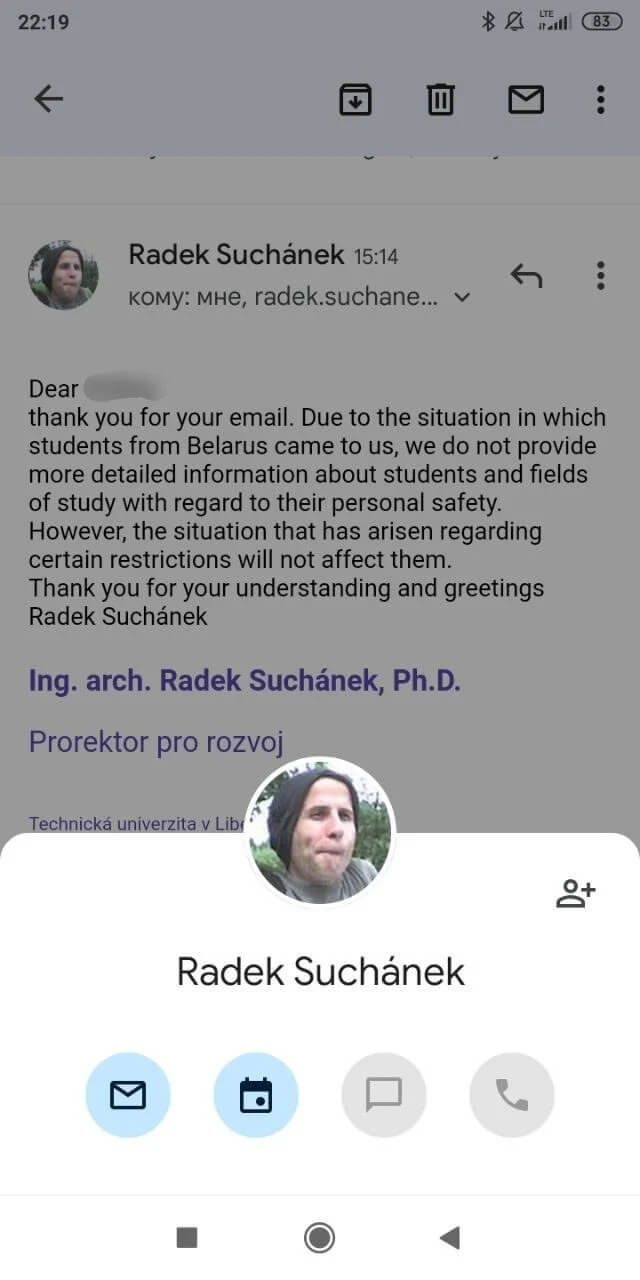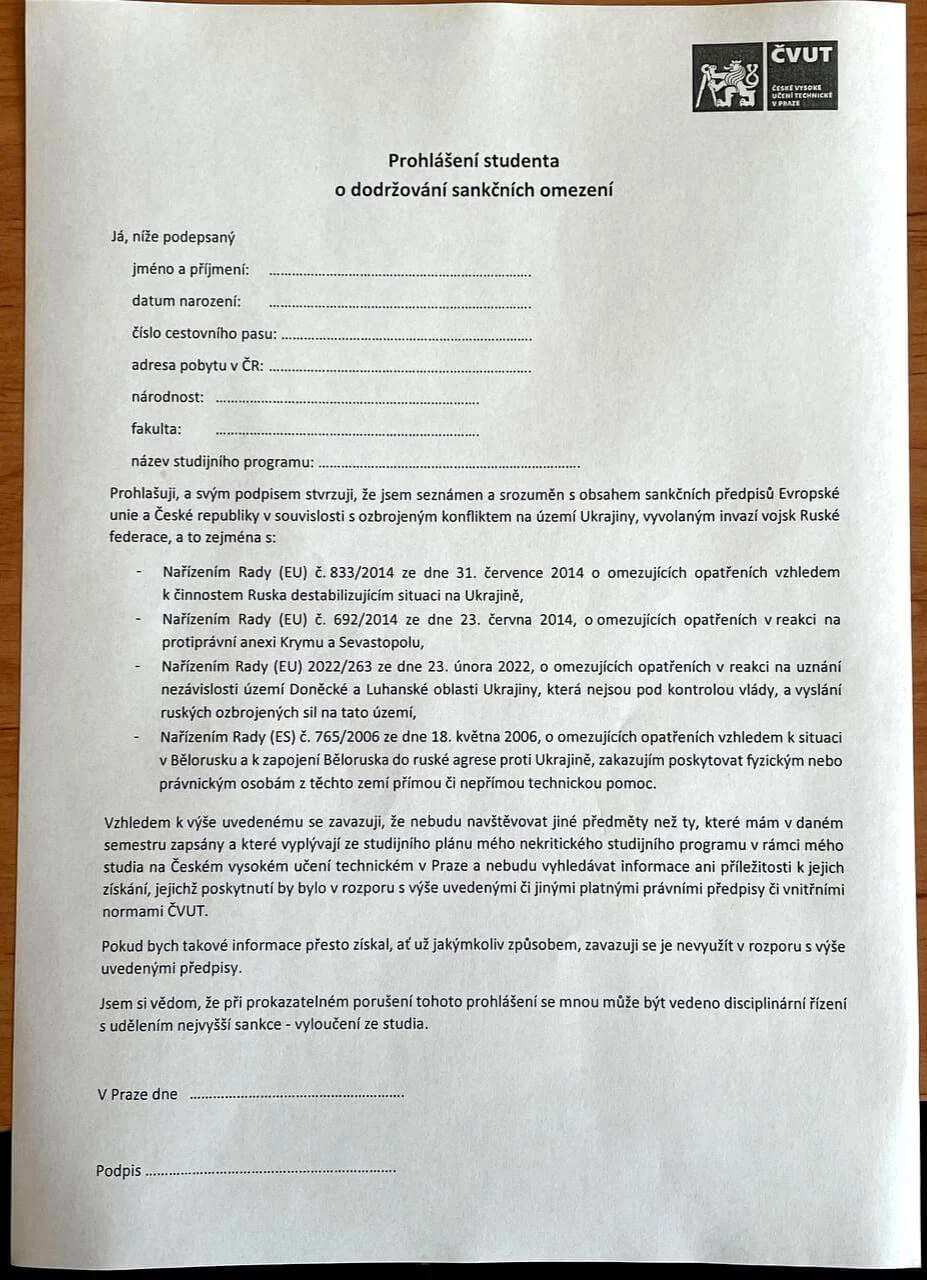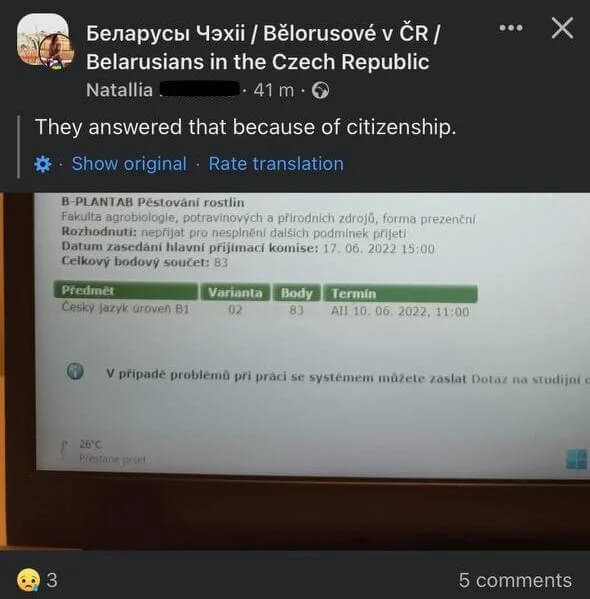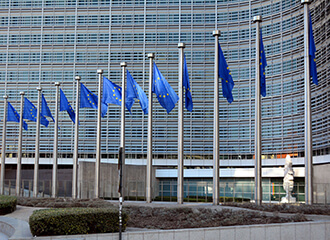The Czech Ministry of Education has recommended universities to limit opportunities for students from Russia and Belarus to study technical specialties, because it interprets such education as technical assistance to sanctioned countries. However, Czech universities make their own decisions.
Three students from Belarus told Dev.by how they experience the period of passport discrimination and what they think about it.
Here is a translation of the original article.
Story 1. It's hard to understand what the universities are guided by
The hero of this story says that in 2020 he entered the IT specialty at one of the regional universities in Belarus and studied there for a year. But he gave it up «because of the atmosphere at the university.»
— This year I’m applying to computer science in the Czech Republic. I studied for a year at courses, the first semester on distance learning, and since February – full-time, in the Czech Republic. At the moment I have two options for entering a university: Czech Agricultural University in Prague (ČZU) and Technical University in Ostrava (VŠB). So far, everything is okay with these options, I am waiting for the universities to confirm my high school education.
At the same time, there are problems in ČZU for those who entered university for specialties related to chemistry and biology. They don’t accept you even for forester specialty if you are Belarusian or Russian. And again, I don’t have such problems yet. I don’t know why: maybe they don’t consider this program dangerous, because all the information can be found on the Internet. It’s hard to understand what they are guided by.
But they wouldn’t accept me at Tomas Bata University in Zlin: allegedly, there was a shortage of places. Then I got a letter saying that, according to my GPA, I got only 99 points, which is below the minimum. This is very strange. The fact is that I have the highest average grade, which is equal to 400 points in the Czech system (the minimum gives 100 points). The same situation is with my friend from Moscow, she tried to figure it out, but to no avail. I don’t even want to know what happened, because their specialty – IT in management – was a Plan B for me.
I also know that the university in České Budějovice has stated that it will accept everyone with no consideration for citizenship.
They were also ready to accept me to the Jihlava University of Technology, but I can’t enter this university, because my diploma is not notified. Nostrification is the process of recognition of education in the Czech Republic. You submit a package of documents to the magistrate, pay a fee and wait to be assigned a school and subjects for exams. The set of subjects depends on your school curriculum. In the Czech Republic they study longer than in Belarus – 12-13 years. If you pass everything successfully, you get nostrification. But, as it was explained to us at the language courses, there is a long waiting list for nostrification.
At the same time, most universities practice internal recognition of the GED. You send a package of documents to the university, pay and wait for the answer. The disadvantage of this is that the internal recognition is only valid at the university where you do it. And the notified GED is valid for all universities. In general, each university here is like an independent state. It decides by itself which specialties are «critical» and which are not. Most of the «critical» specialties are in the master’s program.
It’s hard for me psychologically right now. But I am going to enter a university and settle in the Czech Republic. I hope to enter the university in Ostrava, because the program there is more attractive than in ČZU.
Story 2. We are trying to explain to politicians that Belarusian students don't have to prove anything
A student of the faculty of architecture at the Technical University in Liberec (TUL). She entered it in 2021 as part of a program to help repressed students from Belarus. Now she participates in the student movement against discrimination based on nationality. She emphasizes that there is no such discrimination in her university.
— On May 7, students from Belarus and Russia created a telegram-chat Studenti nejsou hrozbou (Students are not a threat), in which they discussed plans for peaceful protests and pickets [against the policy of the Czech authorities].
Due to discrimination based on nationality, we decided to create an official representative office of Belarusian students to promote our interests at a higher level. It is called Bělaruské studentstvo ČR.
Universities are autonomous, their decisions are taken by rectors, so the situation differs from university to university. There are about 20 students from Belarus at my university, and there is no discrimination against them. This can’t be said about the Czech Agricultural University (ČZU) or the Czech Technical University (ČVUT). There students are asked to sign papers stating that they are against Belarus joining Russia’s aggression, do not recognize the DNR and LNR, and so on. Applicants may be rejected even after successfully passing the stages of entering.
For example, one of the applicants to ČZU was denied entry. She’s fine now, she entered an architectural program, ČZU was a Plan B.
What we are doing now: trying to explain to Czech politicians that the majority of Belarusians who left their country do not support what is happening [and do not have to prove anything].
In early spring I communicated with a representative of the Czech student union, which helped to coordinate the Belarusian students. He promised that the Czech Republic would be able to accept all convicted students from Belarus and that they would be given scholarships and help in learning the language. But in recent months the number of scholarships for Belarusian applicants this year has turned from 250 to 100, and then to 0. And not because of high demand, but because of a change of attitude towards Belarus (dev.by asked how the information about the scholarships was confirmed, the interviewee claims that these agreements were informal at the level of the Ministry of Education).
Those who entered earlier still get a scholarship. I get about 350 euros. In general, that’s enough.
My expectations of a 4-year study at the faculty of architecture in the Czech Republic were a bit underestimated, because in Belarus I had to spend 6 years for my bachelor’s degree. Now I realized that the quality of education can’t be estimated by the time spent within the walls of the university. The level of education here is higher, the teachers are authoritative, and the studying process is carried out in an atmosphere of freedom and equality.
The student’s words about the absence of discrimination at the University in Liberec are confirmed by its vice-rector Radek Suchanek. He assured dev.by that the well-known restrictions did not affect students from Belarus at his university.
Story 3. There are few cases with Belarusians
A 2022 applicant, a representative of the Belarusian studentship in the Czech Republic. She managed to enter with no problem a creative specialty in the Czech Republic – producing, the university warmly welcomed her. She knows about the problems of other students, but says that there are few Belarusians among them.
— There are few cases with Belarusian applicants for several reasons. First, it is 2022 already, there are fewer refugees. Second, universities that have imposed such restrictions are not considered prestigious, and usually people apply to them as a Plan B. Thus, Belarusian students mostly choose a bit different specialties. For example, creative ones. There are also a lot of Belarusians among medics.
I know universities that help or helped Belarusians. Mostly it is the Medical University (MUNI) or Karlov (CUNI). Also, this year VŠE accepted ours for sure. As for regions, for example, Slezská uneverzita.
ČZU sends answers to Belarusian and Russian applicants with the following explanation of the refusal: «Students with citizenship of the Russian Federation, Belarus can’t study tactical fields because of sanctions based on the decisions of the EU Council (№ 833/2014, № 692/2014, № 2022/263 and № 765/2006).»
At the same time, the Czech Republic is the only EU state that has adopted this kind of sanctions. Although it should be noted that decisions in each situation are made individually by universities.
Also, according to a Russian chat, ČZU was blocking student cards of Belarusians and Russians who already study there. So that they couldn’t get into the building of the university. Earlier, there were cases when they closed the doors and didn’t let students, who came to ask about sanctions, in.
As for interesting amendments. Students who have entered other (non-banned) specialties are forced to sign a paper where they promise that they will not attend classes/lectures of banned «tactical» specialties.
ČVUT — Czech Technical University
This photo shows that Belarusians are denied based on citizenship, despite their high entrance examination scores.
The big problem now is that we are almost undistinguished from Russians. And they mention us with a comma. Even in defenсe of rights. Several times our voice has been used to call representatives of the Russian national minority, with whom we have not even had any connection. But we resolve such situations quickly.
We, as a student association whose goal is to represent and protect the rights of Belarusian students in the Czech Republic, are glad that there are almost no cases of extreme discrimination against Belarusians. In addition, we can also recall that universities receive special funding when they accept foreign students. That is why the behavior of some institutions is very strange. It is clear that sanctions are imposed at the state level. And this is done by special services. But then again. Only a few universities follow this mechanism.
So far, something strange is going on in the Czech government. And at the same time, the Minister of Education was replaced. As a result of this change, there is no good news for Belarusian students.
